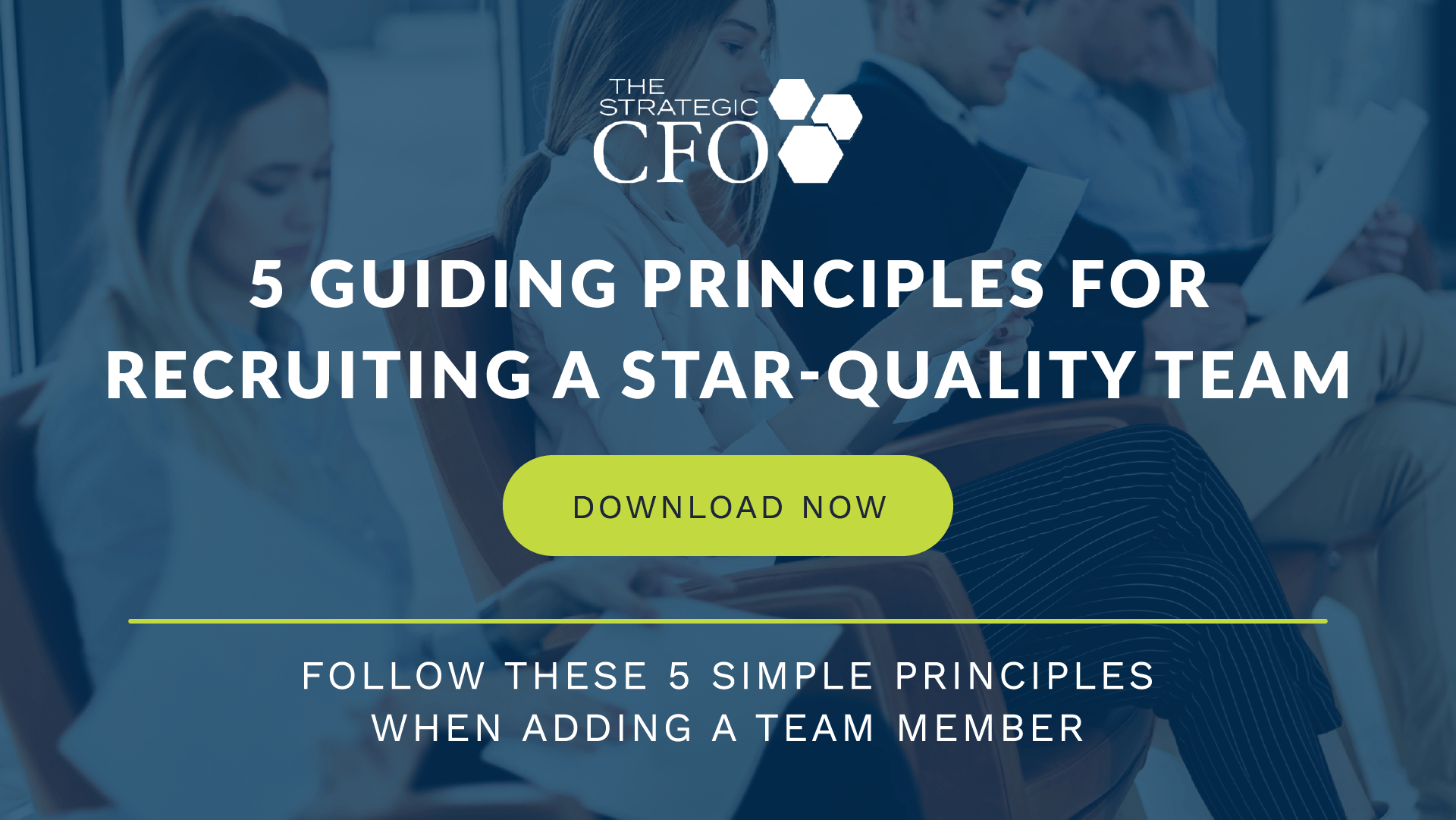Now, this is a topic that hits every company: what accounting system should your purchase? There is no question that technology has changed the way we do business. When I started working in the late 80’s, we had our first system implementation in an oil and gas company I worked for. It was a huge server(s), and they mainly ran our accounting system. It was an oil and gas producer, and we had thousands of joint interest billings and partnerships to account for. Before this, it took an army of bookkeepers and accountants to track this information manually via Green Bar Paper, written ledgers, etc. The revolution of the computer has changed the world – especially the accounting world.
What to do and what not to do!
As companies grow, their needs will change. We do not promote any software, but our professionals and myself have had great experience with everything from Spreadsheets, Quickbooks to SAP and Oracle. I would not recommend that anyone keep their accounting records on spreadsheets, but Quickbooks, SAP, and Oracle are all great systems. Here is the kicker… Which accounting system should I purchase ? It depends on your unique situation. Unfortunately, we see companies make two mistakes over and over again.
Mistakes Companies Make When Purchasing an Accounting System
What are those two mistakes?
- They either refuse to spend the money and upgrade above Quickbooks, when they have clearly outgrown Quickbooks
- They did not have to upgrade, or did not need such a monster package and they purchased the wrong system, maybe one that was to big
You need to understand if you need just an accounting system or a full blown ERP system. There are also big differences in just accounting systems and you still need to understand the different accounting systems through a system selection process.
[box] Understanding your processes in your own company is a big part of selecting a system, and knowing what you must have and what you can live without. Click here to start your Internal Analysis! [/box]
Making the Decision on an Accounting System
I have made it a hobby of mine to observe how CEOs, Boards, and business owners go about decision making for an accounting system. And most of the time, these are some of the ways they have made their decision:
- The CFO or Controller worked with that package in his past, so that is what Company A decided to implement – WRONG
- The I.T. department makes it their project and selects the system – WRONG
- The CEO or Business Owner has a buddy that runs his own company and uses Software X, and he highly recommended it – WRONG
- A sales person finally gets through the door and convinces that decision makers that they must go with either Software A or Software B. No other choices. – WRONG
- The CEO of a small company has friends that are very wealthy and own huge companies, and his own clients are huge companies and he wants to be like them, so he purchases Software X – WRONG (nothing wrong with either of those systems but not for this company, this was a past client of mine)
- This is the beauty that I lived through – The PE Group run by 30-something-year-old Ivey League MBAs must have learned in a text book that S$! was a cool system. So these “X!#&$*!” forced S$! in a new acquisition that was a regulated utility. They dictated who the implementer was going to be, what the time line was going to be, and when we would flip the switch and go live. – WRONG (more on this story below)
These experiences that other businesses have lived through resulted in very costly experiences. I have heard horror story after horror story and millions of dollars wasted in cash, productivity lost, and many sleepless nights for those involved. Also, lost jobs. There is a right way to acquire an accounting software system.
Example of Accounting System Implementations Gone Wrong
Everything below are real stories that have happened to me or a client.
Borderline Bankruptcy of a $220 Million Company due to a failed system implementation
Background: Company X was recently acquired by a fund that was managed by a large well-known equity group. The representatives running the show and giving orders to management were three 30-something-year-old (the three musketeers) highly intelligent individuals. They only had a couple years of experience in the real world outside of their protected environment.
Mistake #1 – Inexperienced Highly Intelligent People Should Not Be Calling the Shots
The three musketeers hired a salesman to act as, “interim President” and chairman of the board. The chairman, a dominating personality, with 40 years of sales experience convinces the young lads that he will take control and make their problems go away. The three musketeers were told by a friend running another portfolio company, that they really need to implement “Software S$!”. The chairman salesmen hires his buddy, a former school teacher, to run the “Software S$!” implementation. This is not a knock on “Software S$!”. It is a fantastic system but only for the right company and when implemented properly. Unfortunately, between the three musketeers, the chairman salesman, and the school teacher, this accounting system implementation was doomed from the beginning.
The original budget for the system implementation was $8 million dollars. Even for this $220 million revenue company, this was a major part of their CAPEX. But the following are other mistakes that compounded the problem with the implementation:
Mistake #2 The IT Department Was Put In Charge Of The System Implementation
The system implementation should have been a Management project, it is never an IT Project. The CFO, Controller, the CEO or his delegated VP of Operations should be managing the implementation.
- There was no system selection process. Someone up the food chain determined that the company would install “System S$!’. It was the wrong system for this regulated utility.
- Someone up the food chain mandated that the system would go live in 8 months. – WRONG. As with all projects, there should be a project timeline, but this timeline is a projection. It should not be a drop dead date that only exaggerates mistakes and issues.
- Since time was a concern, there was a rushed process to Blueprint the system and testing was minimal.
- When the CFO hired one of the Big 4 and expert internal people, they identified the weaknesses and presented a possible train wreck to the Board. The dominating chairman ignored warnings and moved on. – i.e. management was shut down.
Result of a Bad Accounting System Implementation
The resulting consequences were that the implementation of the system escalated to over $30 million in costs and the system did not work. The company had service contracts in place and the system did not generate a single report that was correct. The services contracts were all terminated within a 90-day period. The company lost 50% of its revenue in 90 days. This caused the cash flow to the company to be cut in half, and they defaulted on debt covenants. The company was now in a tailspin out of control. The financial crisis escalated and the finger pointed started. The company would have ended up in chapter 11 if it were not for two very patient lenders that modified covenants and believed the long term story of the entity.
Suggestions on how to go about the system acquisition
I mention this story because it could have all been avoided. There was no need to go through all of this and 1,200 employees lost their jobs. These are some suggestions to CEOs, CFOs, and business owners about selecting a system.
- Hire a company that will assist you in going through a detailed system selection process. Yes, this has a cost, but it is only a fraction of the cost of choosing the wrong system. Companies that assist with system selection process know the market, know the vendors and will understand your operation before you make a decision.
- Do not have any one system in mind when you start the selection process, forget what the next guy uses. Let the experts do their job.
- A good company that assists with the system selection process will shop the system world, narrow down less than a handle full of systems and allow you to make the ultimate decision based on cost, timing and capability.
- As the decision maker, do not set drop dead dates for “going live”. You will run into problems and you will need to extend that project time line at least once.
- Have a budget, write the contract to commit to a system and be aware that modifications are on you. It is very much like building a house. You want a 3,500 SQ Ft home with one story and no pool. If you change along the way and want a 2 story home with a pool, then you will pay for it.
- No system will perfectly fit your company and the way you do things, unless you are prepared to spend millions customizing a system. Most likely, your company will need to change at least some of the processes and the way you do things. Know this up front and tell your people to be open to change.
- This is a Management project. Not an IT project. So, never let your IT people run the project. At most, they would participate in one of the committees supporting the project.
- Keep it simple and chose a system that will allow for growth. But do not purchase the Rolls Royce if the Honda will get you there. The cost difference can be millions of dollars.
Conclusion
There are many good companies out there that can assist you with a system selection process. Do not do it alone, and make sure you go through a detailed system selection process. Rely on the experts, they are your trusted advisors during this project. If you need any assistance with any part of this, then we would be more than happy to assist you and your company. In the meantime, access our free Internal Analysis whitepaper to assist your leadership decisions and create the roadmap to implementing a new accounting system.















